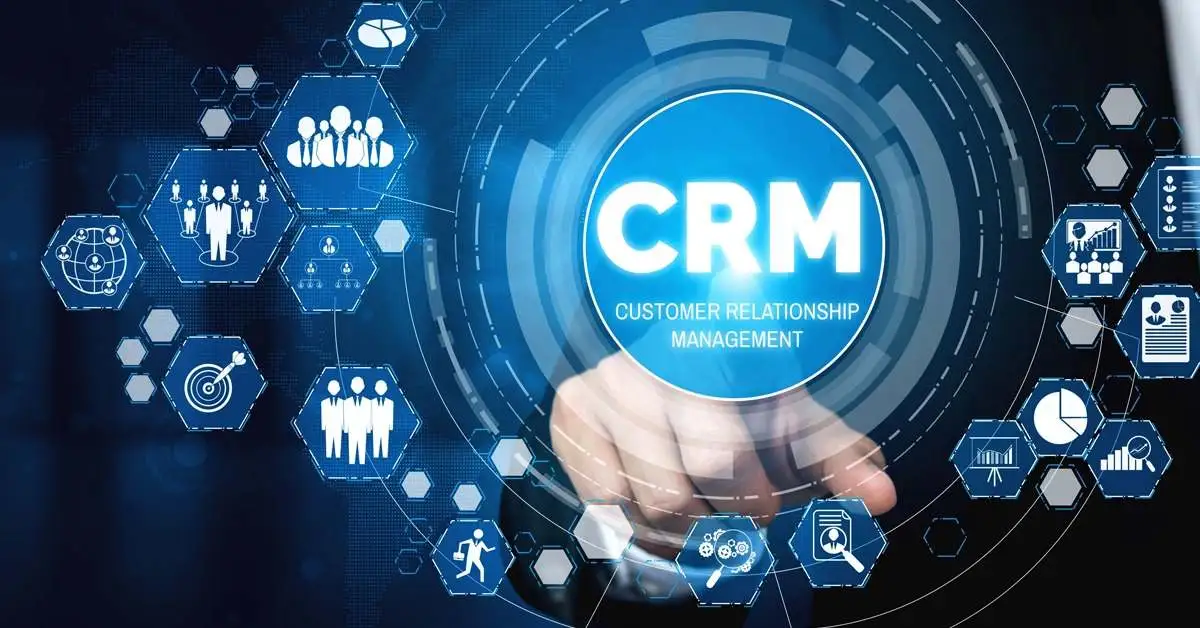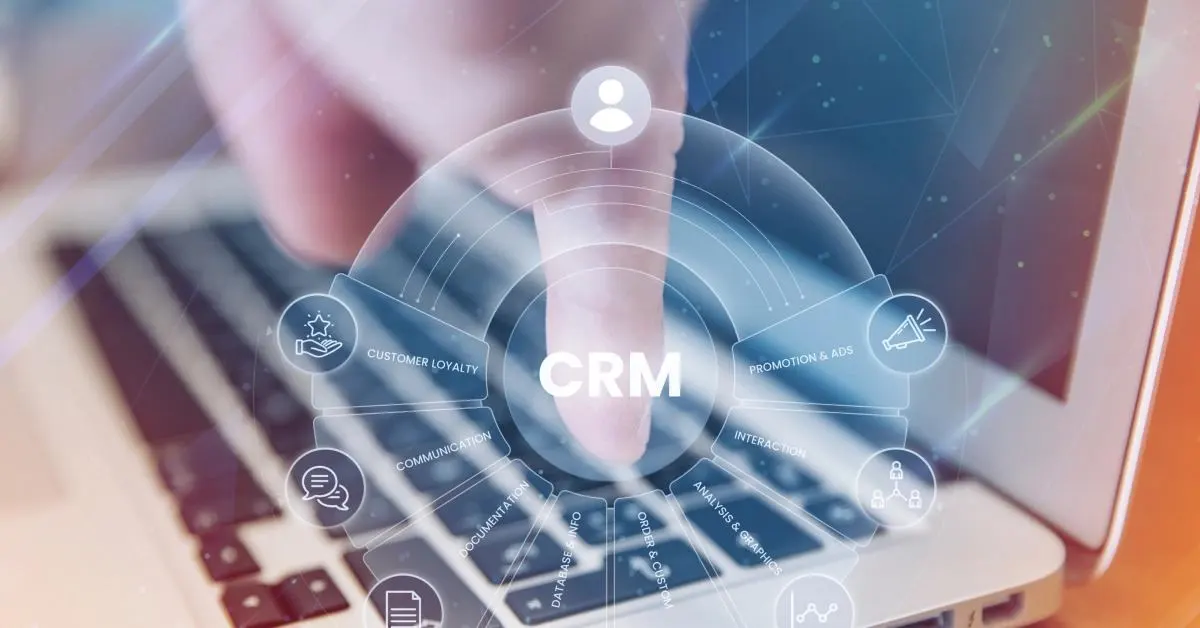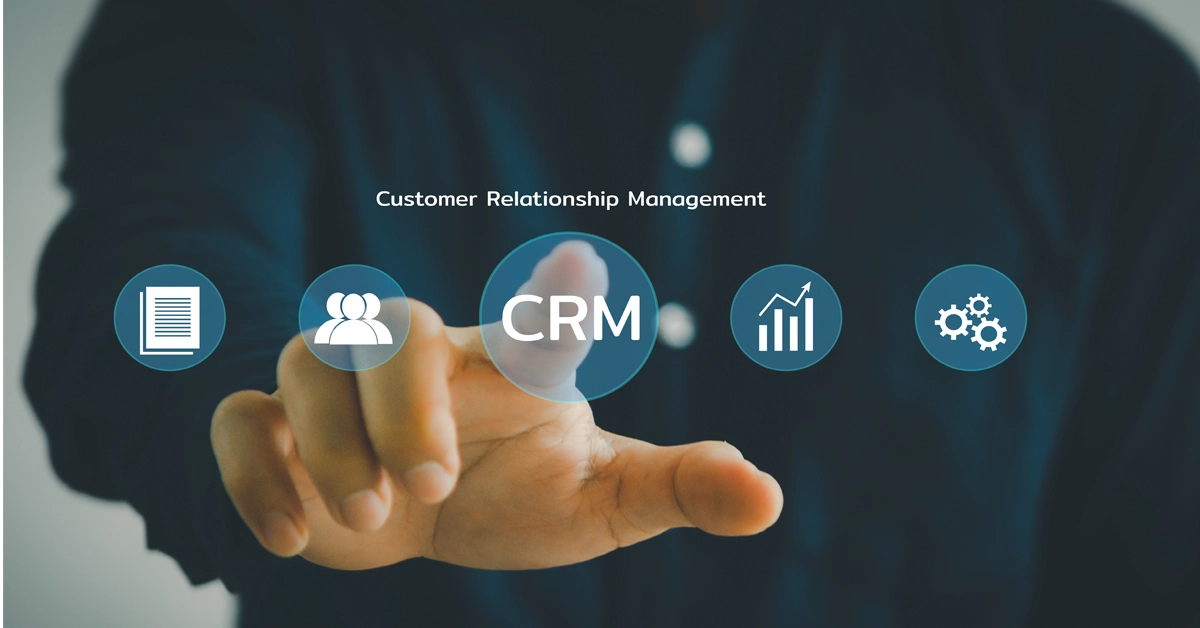7 Best CRM Software & How to Pick the One for Your Business
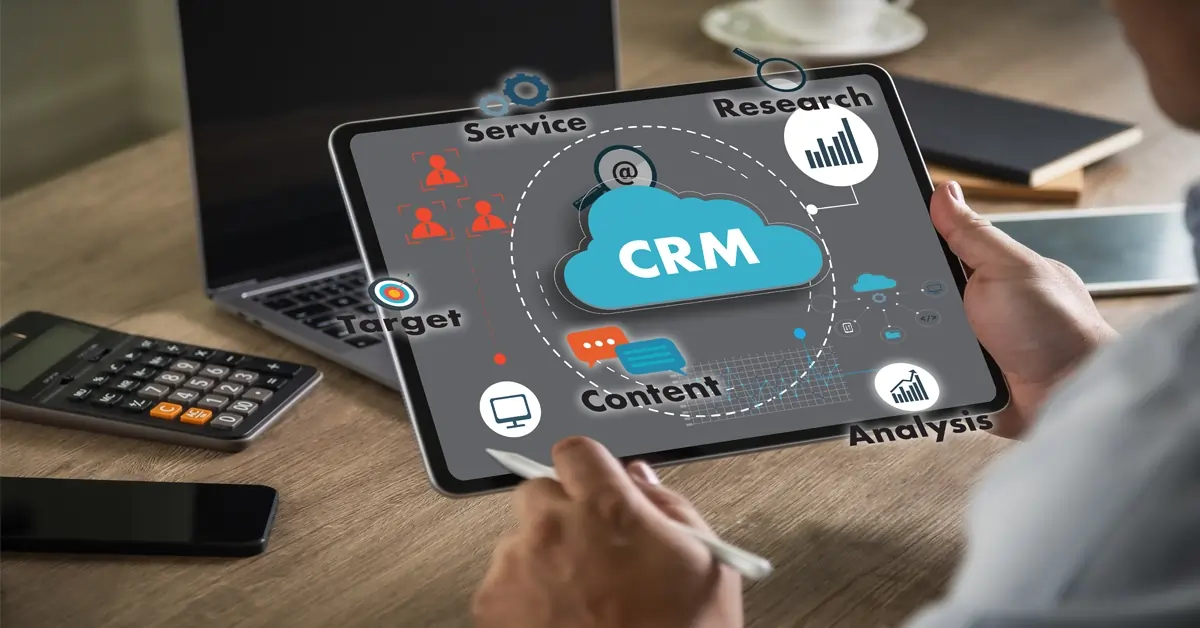
Managing customer relationships is critical for the success of any business. Finding the best CRM software could just be your key to unlocking it.
But with a saturated market overflowing with options, choosing the right CRM software can feel overwhelming.
In this blog post, we have compiled a list of 7 of the best CRM software options for 2024 so you can focus on what truly matters – building thriving customer relationships.
Table of Contents:
- What is CRM Software?
- 7 Best CRM Software
- What to Consider When Looking for a CRM?
- CRM FAQs
What is CRM Software?
CRM, or Customer Relationship Management, is a system that helps you manage interactions with customers. It helps in improving customer relationships and increasing sales by organizing their information effectively.
Its goal is to improve customer service relationships, assist in customer retention, and drive sales growth by compiling data from various communication channels. This could include website, telephone, email, live chat, and social media.
7 Best CRM Software
1. Salesforce
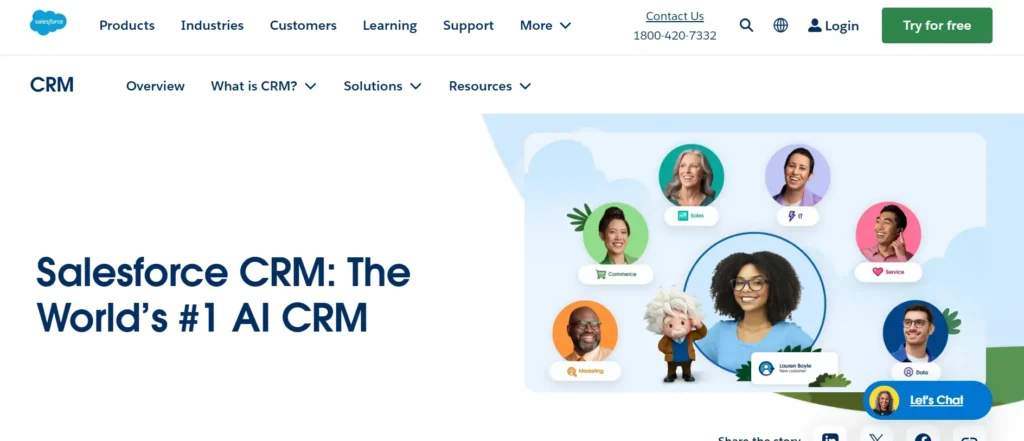
Salesforce CRM is a powerful software platform that manages customer information, streamlines sales processes, and enhances customer relationships through personalized and data-driven interactions.
- Pros: Highly customizable and integrates well with other tools.
- Cons: Can be complex for beginners.
- Features: Sales automation, customer insights, extensive app marketplace.
- Pricing: $25/user/month.
2. HubSpot
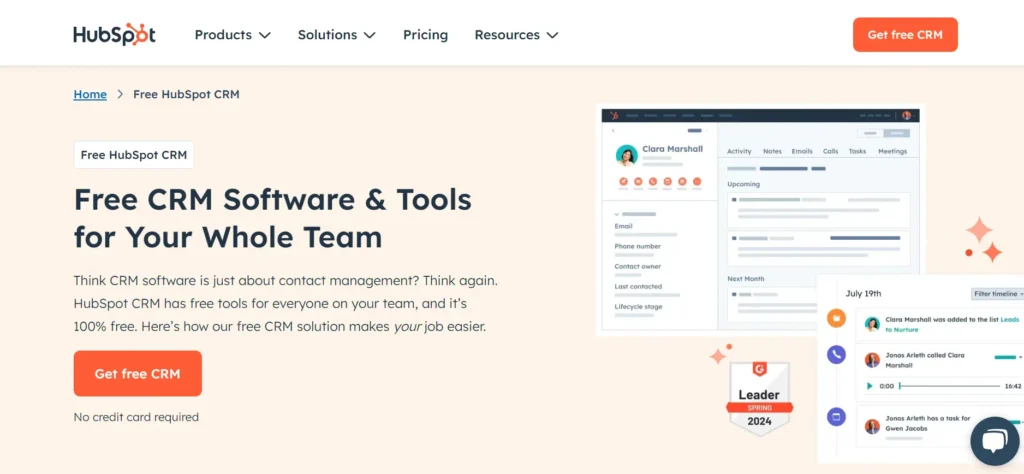
HubSpot CRM excels in user-friendliness and seamless integration, offering tools for marketing, sales, and service to create an all-in-one platform that enhances customer relationships at every stage.
- Pros: User-friendly, excellent for inbound marketing.
- Cons: Can get expensive as you add features.
- Features: Email tracking, pipeline management, marketing automation.
- Pricing: Free tier available paid plans start at $45/month.
3. Zoho CRM
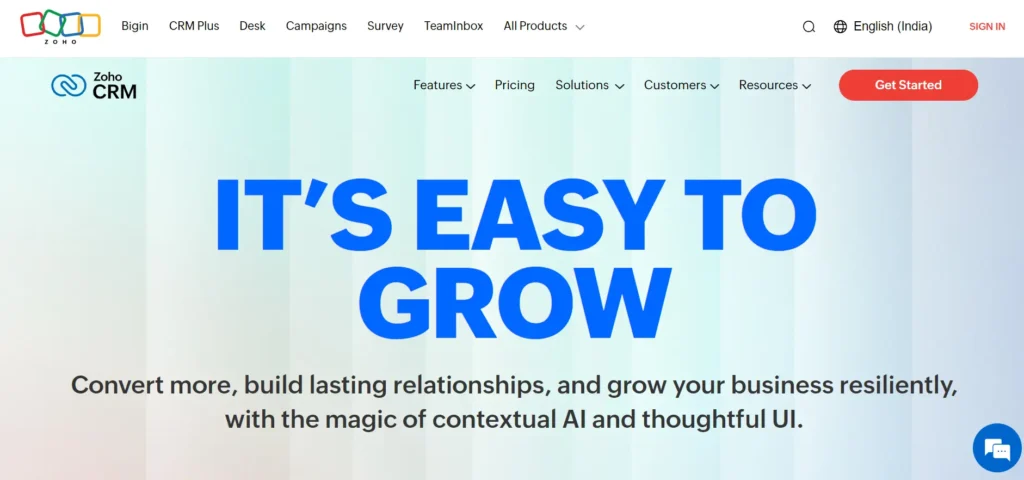
Zoho CRM is an affordable, versatile software designed for small to large businesses, offering multichannel communication, sales automation, and performance analytics to streamline customer relationship management.
- Pros: Good value for money, great for small businesses.
- Cons: Limited integration with non-Zoho products.
- Features: Sales automation, performance tracking, multichannel communication.
- Pricing: $14/user/month.
4. Microsoft Dynamics 365
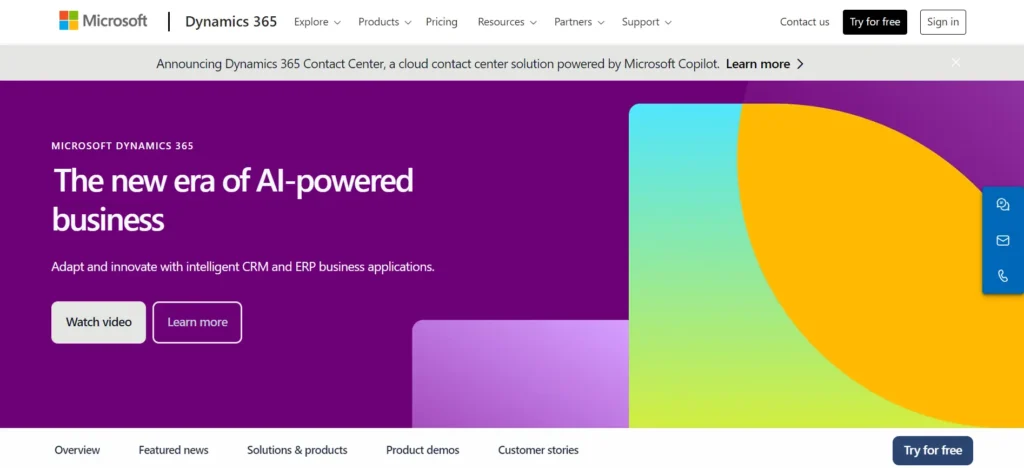
Microsoft Dynamics 365 CRM is a versatile tool that combines customer data, AI, and productivity applications to optimize business processes and deepen customer relationships across multiple channels.
- Pros: Deep integration with Microsoft products.
- Cons: Requires a learning curve and can be pricey.
- Features: AI insights, customized solutions, extensive reporting.
- Pricing: Starts at $65/user/month.
5. Freshsales
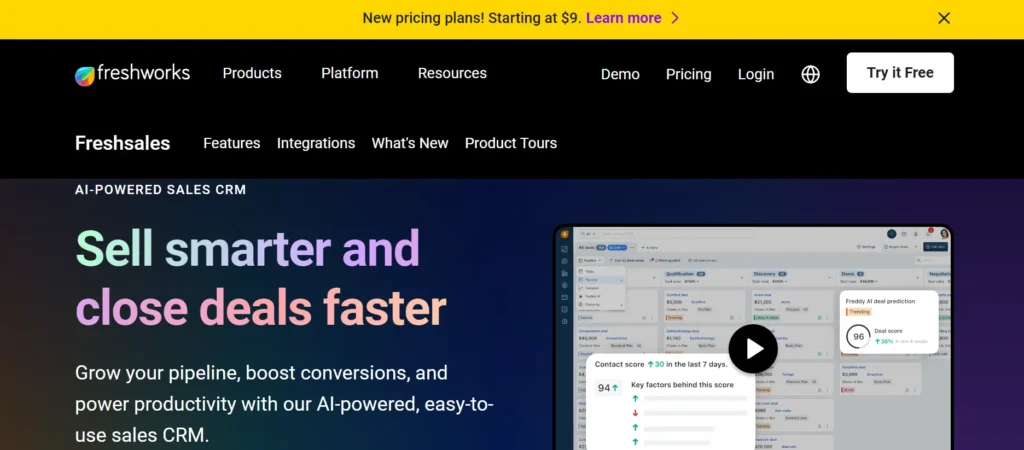
Freshsales CRM software excels in streamlining customer interactions with intuitive UI, automation features, and insightful analytics, making it a favorite for businesses aiming to boost sales efficiently.
- Pros: Intuitive interface, great automation capabilities.
- Cons: Limited customization options.
- Features: Email tracking, lead scoring, AI-based insights.
- Pricing: Free tier available; premium plans start at $15/user/month.
6. Pipedrive
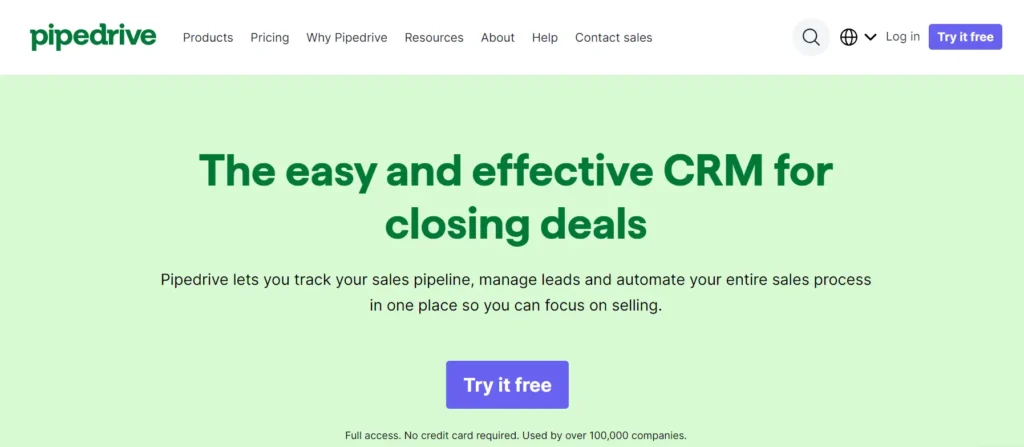
Pipedrive CRM is a user-friendly software designed to streamline sales processes with its visual sales pipelines, effective management tools, and intuitive interface, making sales success more achievable.
- Pros: Simple and intuitive, great for sales-driven businesses.
- Cons: Lacks depth in reporting compared to others.
- Features: Visual sales pipelines, email integration, activity reminders.
- Pricing: Starts at $12.50/user/month.
7. Insightly
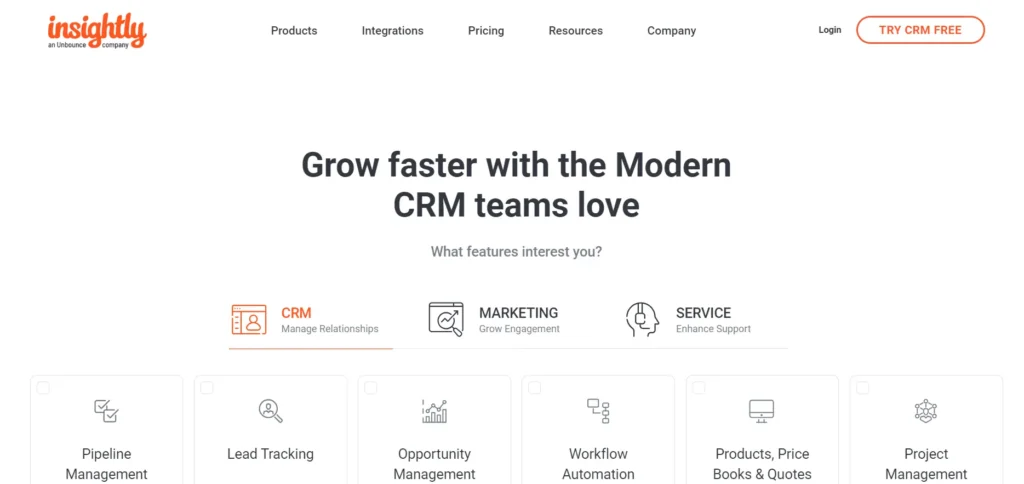
Insightly CRM software excels in project management and customer relationships, offering tools for detailed relationship tracking, workflow automation, and seamless integration with major apps.
- Pros: Great for project management alongside CRM.
- Cons: Some features are only in higher-priced plans.
- Features: Relationship linking, project management, workflow automation.
- Pricing: Starts at $29/user/month.
What to Consider When Looking for a CRM?
Deciding on the right CRM (Customer Relationship Management) system for your business involves evaluating several key factors to ensure it aligns with your needs. Here’s a streamlined process to help you make the right choice.
1. Business Needs and Goals
Clearly define your specific business requirements, such as lead management, sales automation, customer service, marketing, and reporting.
Evaluate how the CRM software can support your current and future business goals.
2. Scalability and Flexibility
Assess the CRM’s ability to grow and adapt as your business expands or your needs change over time.
Look for a solution that can accommodate increased users, data, and functionality as your company evolves.
3. Ease of Use
Consider the CRM’s user interface and overall user experience to ensure it’s intuitive and easy for your team to navigate.
Evaluate the onboarding and training resources available to help your employees quickly adapt to the new system.
4. Integration and Data Management
Assess the CRM’s ability to seamlessly integrate with your existing business applications, such as email, accounting, and marketing tools.
Ensure the CRM can effectively manage and centralize your customer data, providing a comprehensive view of your client relationships.
5. Reporting and Analytics
Evaluate the CRM’s reporting and analytical capabilities, ensuring they align with your data-driven decision-making needs.
Look for CRM features like customizable dashboards, real-time insights, and advanced analytics to support your business intelligence.
6. Customer Support and Ongoing Updates
Assess the CRM provider’s customer support options, such as online documentation, training resources, and responsiveness to troubleshoot issues.
Understand the provider’s commitment to regular software updates and feature enhancements to keep your CRM system up to date.
CRM FAQs
CRM software pricing varies greatly depending on the provider, features and functionality, number of users, and deployment style (on-premises or cloud-based). Cloud-based CRM solutions typically have lower subscription-based pricing, but on-premises CRM may have greater upfront fees but lower continuing expenses. Basic CRM solutions can cost as little as a few dollars per user each month, while enterprise-level solutions might cost hundreds of dollars.
The implementation process depends on the chosen CRM. User-friendly platforms offer intuitive interfaces and minimal training requirements, allowing you to get started quickly. Some CRM providers also offer implementation assistance to ensure a smooth transition.
CRMs offer a multitude of advantages, including:
1. Increased Sales and Productivity: Streamlined lead management, sales pipeline tracking, and automation free up time for your team to focus on closing deals.
2. Enhanced Customer Service: Improved customer data organization allows for faster response times and more personalized interactions.
3. Data-driven Decision-making: Generate reports and gain insights into customer behavior and sales performance, enabling informed strategic decisions.
4. Improved Team Collaboration: Centralized customer information fosters better communication and collaboration between departments.
Related Post
Copyright © gocustomerexperience.com. All Rights Reserved.

